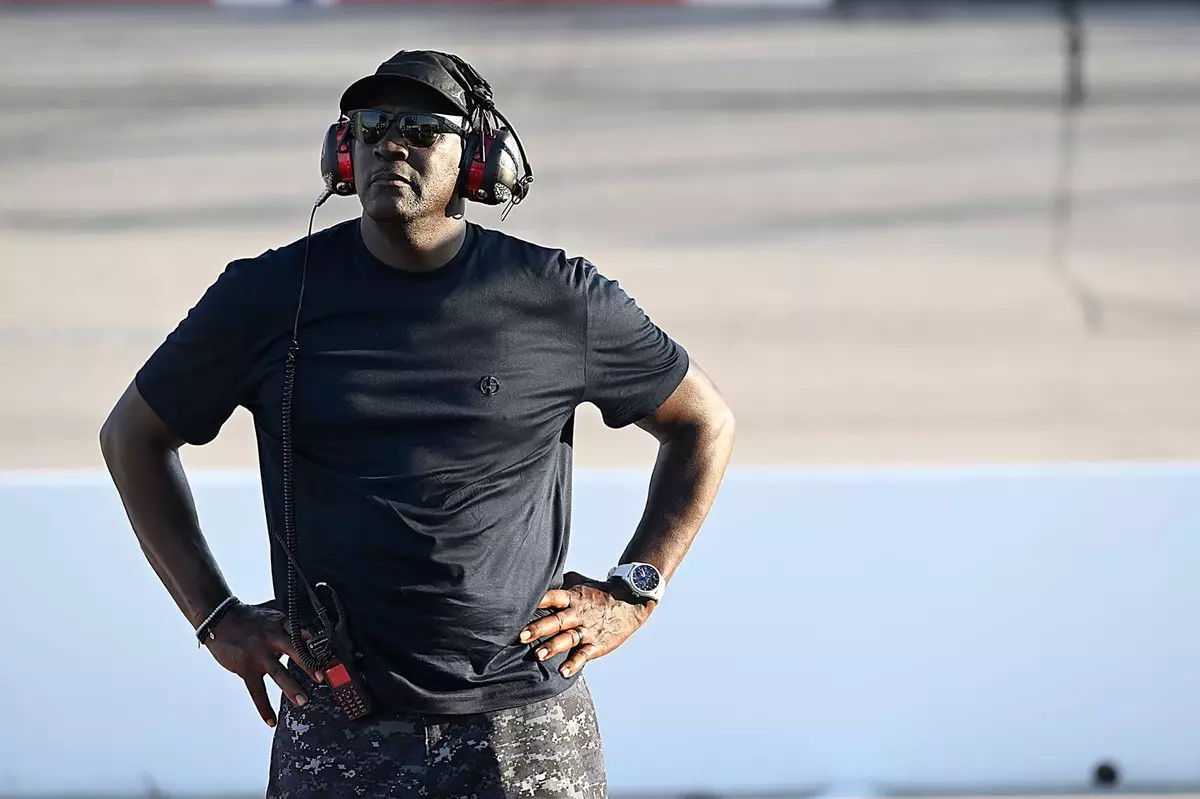Recently, NASCAR has found itself embroiled in a significant controversy as 23XI Racing and Front Row Motorsports have taken the bold step of filing a lawsuit against the organization. At the heart of the matter are allegations of anti-competitive practices and monopolistic control that, according to the two teams, undermine the integrity of the sport. This legal confrontation emerges from a prolonged conflict between the teams and NASCAR’s leadership, particularly regarding the new charter agreement that has raised substantial concerns among team owners.
Both racing teams have chosen to reject the proposed charter agreement, citing various issues that they believe could restrict competition within NASCAR. Their frustrations culminated in a joint statement, declaring their intention to seek legal redress in order to promote a fairer landscape for racing. Central to their argument is the assertion that the current climate inhibits the potential for success among teams, drivers, and sponsors alike. By igniting this antitrust case, the plaintiffs hope to seed change that would ultimately benefit not just the teams, but the fans who passionately support them.
In their lawsuit, 23XI Racing and Front Row Motorsports leveled serious allegations against NASCAR’s governing family, the Frances. Since its inception in 1948, NASCAR has been perceived by some as operating in a manner that prioritizes its historical legacy over transparency and fairness. According to the undertaking of the lawsuit, NASCAR’s leaders have contrived conditions that unfairly grant advantages to a select few at the detriment of broader competition.
The teams issued a detailed account of what they believe are anti-competitive practices. Notably, NASCAR’s acquisition of prime racetracks exclusively hosting NASCAR events serves to cement its power. Furthermore, the imposition of exclusivity deals and the control over valuable resources, such as parts and cars, exclusively chosen by NASCAR stifles the ability of teams to innovate and compete effectively.
23XI Racing boasts prominent owners, including NBA star Michael Jordan and accomplished driver Denny Hamlin, who have made waves since the team’s inception in 2020. Front Row Motorsports has been a staple in stock car racing under owner Bob Jenkins since 2005. Each team fields two full-time cars and has ambitions for growth, such as Front Row’s recent initiative to expand its fleet. The contrasting journeys of these teams highlight the broader issues at play for smaller and emerging racing entities within NASCAR’s ecosystem.
NASCAR’s charter agreement, which was first introduced in 2016 and extended until 2031, has elicited polarized opinions. While many teams have accepted the terms, the dissent from 23XI and Front Row indicates a potential fracture in the sport’s unity. With a notable refusal by the referred teams, the impending legal action illuminates the deeper administrative tensions that may have long-lasting repercussions for the league.
In their roadmap for litigation, 23XI Racing and Front Row Motorsports have stated their intention to file for a preliminary injunction. This critical legal maneuver aims to enable their participation under the forthcoming charter agreement while pursuing the full antitrust case. The teams seek detailed disclosures from NASCAR regarding their purported exclusionary practices, laying the groundwork for a case that could expose conflicting interests at the highest levels.
Moreover, the teams are not seeking mere clarity but are pushing for treble damages stemming from what they deem to be an unfair imposition of terms under the existing charter agreement. This legal pursuit signifies a formidable challenge to NASCAR’s authority, as the plaintiffs position themselves as advocates for equitability within the sport.
Statements from key stakeholders like Michael Jordan and Bob Jenkins reflect a growing frustration within the community. Jordan articulated a fiery commitment to enhancing competition and creating a favorable environment for all involved in NASCAR. Jenkins echoed this sentiment, asserting that an overhaul of the system is necessary to foster the same kind of respect and meritocracy that is commonplace in other major sports leagues.
The unified front presented by both teams underscores a pressing need for a collaborative relationship with NASCAR’s leadership—a call for partnership rather than dominance, as articulated by co-owner Polk from 23XI Racing. This perspective suggests a rethinking of the existing power dynamics, advocating for reforms that emphasize fairness and transparency.
As 23XI Racing and Front Row Motorsports embark on what could become a landmark legal battle, the implications for NASCAR extend far beyond the lawsuit itself. The outcome may well set a precedent for how future agreements are structured and how competition is regulated within the sport. Ultimately, the unfolding events could reshape the landscape of stock car racing, potentially ushering in a new era characterized by enhanced collaboration and fairness, or cementing existing monopolistic practices that could stifle innovation and growth. Consideration of all perspectives and constituents involved will prove crucial if NASCAR aims to sustain its prominence in the competitive sports arena.

